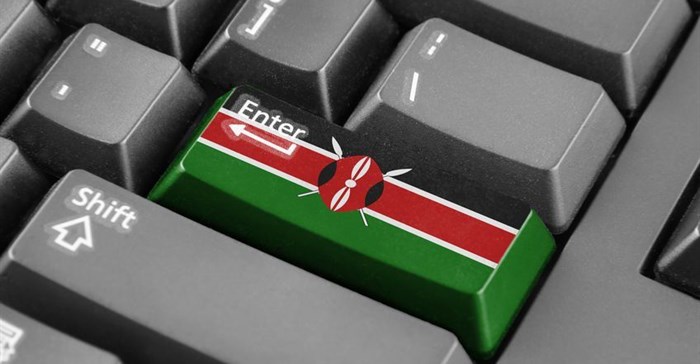Kenya is moving aggressively to tax digital business. What next?

Naturally, governments keen on maintaining tax revenues have sought to bring digital income into their tax base. Governments such as Kenya’s have been grappling with ways of tapping into the global digital space for some time. Kenya’s digital services market revenue is projected to reach $4.4bn in 2022, up from $1.9bn in 2017.
Digital enterprises can avoid taxes when their activities earn income from multiple countries and when no one state can claim it has authority to tax them. Companies are also attracted to countries that have favourable taxation laws, enabling them to maximise profits.
Some states are able to impose tax by exercising authority over companies incorporated within their boundaries. When this is not the case, governments need to prove substantial contacts between the company and state.
Kenya is among a small number of African countries that had introduced a digital services tax before the pandemic. In 2019, Kenya’s budget report introduced a digital service tax for the first time. These tax rules however seemed to have been hurriedly conceived and it was not clear who was to bear the burden of the tax.
The revised digital service tax regulations that came into effect in January 2021 are far more detailed about whom and what to tax. In the recent June 2021 budget report, Kenya has again sought to widen the scope of digital service tax. Kenya also seeks to overcome one key challenge facing governments that have tried to implement the digital tax. This is a fair and equitable collection of the tax.
It remains to be seen what the impact will be on individual users targeted by the new taxes as well as firms, both large and small. In all likelihood, large companies such as Zoom – which has started paying VAT on its services in Kenya – will weather the storm. But service taxes could for example be a heavy weight for struggling start-ups that shifted into the digital space for survival. This could have the effect of strangling the young local digital industry.
Evolution of digital tax
The first iteration of Kenya’s digital service tax law defined it as tax levied upon all income accruing through a digital marketplace. The digital marketplace was described as an electronic platform that enables the direct interaction between buyers and sellers of goods and services. The law imposed a 1.5% tax on any income accrued from the internet platform.
Significantly, the digital marketplace was limited in this definition to a platform where electronic sale of goods and services was taking place. An example would be like the Amazon and Jumia digital market platforms. The transactions were deemed to take place between legal persons (human and fictitious) classified as buyers and sellers.
Revisions made recently in the 2021/2022 budget statement which sought to widen the scope of the digital tax. The tax now applies to income accruing from a business carried out over the internet or an electronic network including through a digital marketplace.
The definition of digital marketplace has also been amended to include online platforms that enable users to sell or provide services, goods or other property to other users.
The law goes further to define a platform as any electronic application that allows digital service providers to be connected to users of the services, directly or indirectly. This includes a website and mobile application. These changes widen the tax net to cover a wide range of digital services. This includes transactions taking place over a network such as data interchange and licensing. These are intermediary or third parties that help businesses exchange data and electronic documents to optimise supply chain communication.
Changes bring clarity
These changes provide clarity and specify what activity falls under the tax, where it is carried out and by whom. For instance it removes the limitation that specifically required one to be a buyer or seller. The tax is now applicable to internet users or electronic network users who successfully sell wares over an internet or mobile platform or any other form of electronic network.
This extends to any business carried out over the internet or any electronic network. These changes not only capture the traditional electronic markets like eBay but also social media, Facebook, intranets, or private trade networks on the internet.
The taxable listed digital services include downloadable digital content, mobile applications and e-books. Also listed are over the top services such as movie streaming, monetised data collected and traded, provision of the digital marketplace and subscription-based services. So too are electronic data management including website hosting, electronic booking and ticketing services and provision of search engines. Online distance training is also being taxed.
The new law affects every person who derives income online or on an electronic network. That includes residents and non-residents who accrue income from a digital marketplace. In short, it means that any revenue derived from the internet or electronic networks is subject to income and VAT tax.
It also affects foreigners or non-resident persons in the business of transmitting messages by cable, radio, optical fibre, television broadcasting, Very Small Aperture Terminal (VSAT), internet, satellite or similar method of communication regardless of whether the messages originate from Kenya or not.
This article is republished from The Conversation under a Creative Commons license. Read the original article.![]()
Source: The Conversation Africa

The Conversation Africa is an independent source of news and views from the academic and research community. Its aim is to promote better understanding of current affairs and complex issues, and allow for a better quality of public discourse and conversation.
Go to: https://theconversation.com/africaAbout Mercy Muendo
Mercy Muendo, lecturer, information technology and the law, Daystar UniversityRelated
Understanding the 2025 VAT increase: Key considerations for South African business owners 8 Apr 2025 SACP rejects proposed VAT hike, urges tax system overhaul 24 Feb 2025 Get ready for biometric tax filing: South Africa sets a new precedent 27 Nov 2024 South Africa's Promise Agency strikes Gold at LIA for The Vluit Project 17 Oct 2024 African marketers gear up for AMC’s 3rd annual awards in Mombasa 4 Sep 2024 Kenya must compensate family of slain Pakistan journalist, court rules 9 Jul 2024























